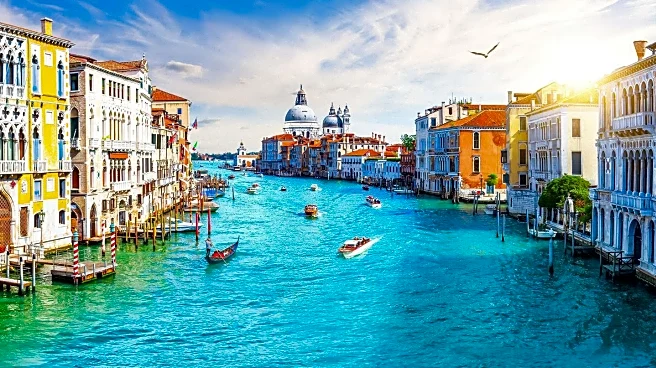What's Happening?
Venice, Italy, is a city known for its rich cultural heritage and vibrant tourism industry. The city is divided into six districts and features famous islands such as Lido di Venezia, Murano, and Burano. Venice is renowned for its unique transportation
system, with canals serving as the primary mode of travel. Key attractions include the Doge's Palace, St. Mark's Basilica, and the Rialto Bridge. Venice hosts several cultural events, including the Carnival of Venice and the Biennale di Venezia, attracting visitors from around the world.
Why It's Important?
Venice's cultural events and historical landmarks are significant contributors to its tourism industry, which is a major economic driver for the city. The Carnival of Venice and Biennale di Venezia are internationally recognized events that showcase Venice's artistic and cultural legacy. However, the influx of tourists presents challenges, including overcrowding and environmental impact. Balancing tourism with preservation efforts is crucial for maintaining Venice's cultural heritage and ensuring sustainable economic growth.
What's Next?
Venice is exploring strategies to manage tourism sustainably, including regulating visitor numbers and promoting off-peak travel. The city is investing in infrastructure to protect against flooding and preserve its historical sites. Efforts to enhance cultural offerings and improve visitor experiences are ongoing, with a focus on maintaining Venice's status as a premier cultural destination. Collaboration between local authorities, cultural organizations, and the tourism industry is essential for achieving these goals.
Beyond the Headlines
Venice's approach to managing tourism and cultural preservation offers insights into broader challenges faced by historic cities globally. The ethical considerations of balancing economic interests with cultural heritage protection are complex, requiring innovative solutions and international cooperation. Venice's experience can inform strategies for other cities seeking to preserve their cultural identity while accommodating tourism.














